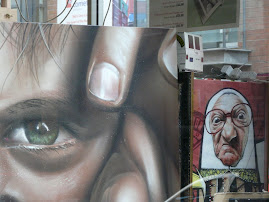
In 60 years of conflict, it is not often that shock reverberates so deeply amongst the international community.
After years of occupation, illegal Israeli settlements, theft of land and vital resources, house demolitions, the construction of an illegal Apartheid wall, the brutal blockade of Gaza it seemed that we had all become subdued by a steady ebb and flow of violence directed against the Palestinians.
Yet this Saturday, Israel launched a deadly attack against the Palestinians of Gaza which can never be forgotten. “Operation Cast Lead” began a deadly assault on a siege-crippled people and has already been declared as the bloodiest day in all sixty years of conflict. The death toll on the first day climbed from 200 deaths and hundreds injured to 360 killed and at least 1,000 injured- the military assault continues for the fourth day with a threat from Israel that the onslaught in Gaza could last for weeks.
Rather than condemning this blatant Israeli brutality, US policy makers seem to weaving webs of utter lies and contradiction- basically giving Israel their implicit support.
Rice, the US Secretary of State declared that:"The United States strongly condemns the repeated rocket and mortar attacks against Israel and holds Hamas responsible for breaking the cease-fire and for the renewal of violence in Gaza,"
White House spokesman Gordon Johndroe also echoed:"The United States understands that Israel needs to take actions to defend itself,"
"In order for the violence to stop, Hamas must stop firing rockets into Israel and agree to respect a sustainable and durable ceasefire."
And Obama? Well, he was 'monitoring' the situation...
Another thing, Johann Hari of the Independent states that Hamas has made diplomatic moves which have either been forgotten or simply ignored:
"Before it falls down the memory hole, we should remember that last week, Hamas offered a ceasefire in return for basic and achievable compromises. Don't take my word for it. According to the Israeli press, Yuval Diskin, the current head of the Israeli security service Shin Bet, "told the Israeli cabinet [on 23 December] that Hamas is interested in continuing the truce, but wants to improve its terms." Diskin explained that Hamas was requesting two things: an end to the blockade, and an Israeli ceasefire on the West Bank. The cabinet – high with election fever and eager to appear tough – rejected these terms."
If our government's have let us down with their pathetic attempts to stop these attacks on Palestinians, then the protesters and demonstrators have really spoken. Across the world, people have taken to the streets chanting protests and showing solidarity for the Palestinian people. Here in Manchester, an emergency protest was called outside the BBC on Oxford Road (Sunday 28th at 1pm) to object to the attacks on Gaza which was attended by approximately 400 people. Vigils are also being held there for every day that the conflict continues...















